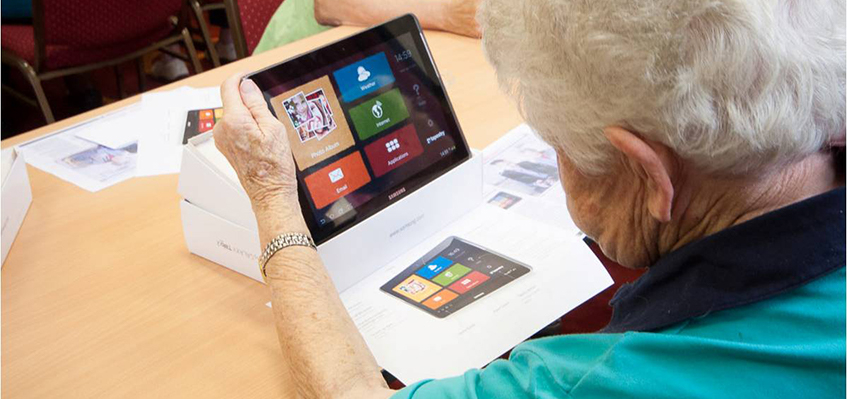28 Aug 2013

HEIDI DOUGLASS | h.douglass@unsw.edu.au
This article was originally published in Simply Connected on the Tapestry website.
Can staying connected with your friends online keep your brain young?
Research indicates that social activity, in combination with a healthy lifestyle and brain training, actually restores and improves brain function.
In many countries we are ageing at an astonishing rate. For example, in the US, the number of individuals aged 90 years and over is predicted to increase from the current 2 million to more than 8 million by 2050.
Centenarians (those that attain the age of 100 years) are the fastest growing age group of all. Which is great. We live longer. We have more time with our children, our grandchildren and quite possibly our great-grandchildren.
On the downside, we can become more isolated as family members travel more and disperse. In terms of the physiology of the brain, this is not a good thing.
A healthy social life is now being acknowledged as an important factor in preventing dementia. But as the means of our social engagement becomes more electronic, there is a danger that if developments in technology are only focussed on young people, the older demographic will be disadvantaged.
Professor Henry Brodaty, Co-Director of the Centre for Healthy Brain Ageing (CHeBA) says that feelings of isolation can lead to depression, which in turn is associated with more cognitive decline.
“As such, it is essential that as well as being physically and mentally active, we stay socially engaged and connected as we age.”
Unfortunately, age-related brain disorders are on the rise, but more evidence is suggesting that family and community engagement, combined with other factors, for example being mentally active and challenged, act as protective factors for the brain from Alzheimer’s and other dementias.
“The significance of social connectedness in relation to healthy brains, is largely underestimated,” says Professor Perminder Sachdev, Co-Director of CHeBA.
Importantly, it isn’t just up to younger members of the family to attempt to keep our older members socially engaged, but also for the developers behind advances in communication technology to factor the older demographic into their plans. Only then will we ensure that our aged population can remain a part of the digital revolution, and stay connected.
Tapestry’s philosophy is to simplify programs for seniors, remove unnecessary functions and make the digital interface more user-friendly with larger fonts and less visual clutter. CHeBA is a willing partner and promoter of this exciting development that is keeping seniors connected with their loved ones, and benefiting their brain function at the same time.
Related News: CHeBA and Tapestry Announce Partnership
